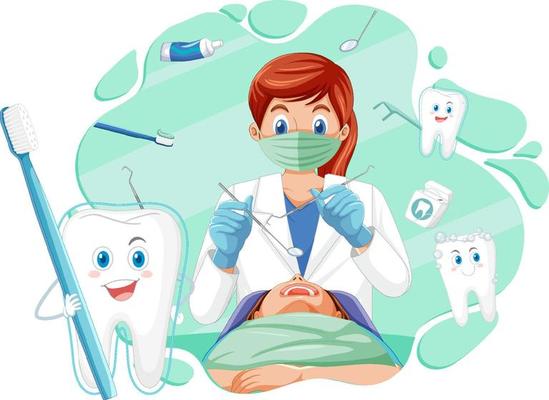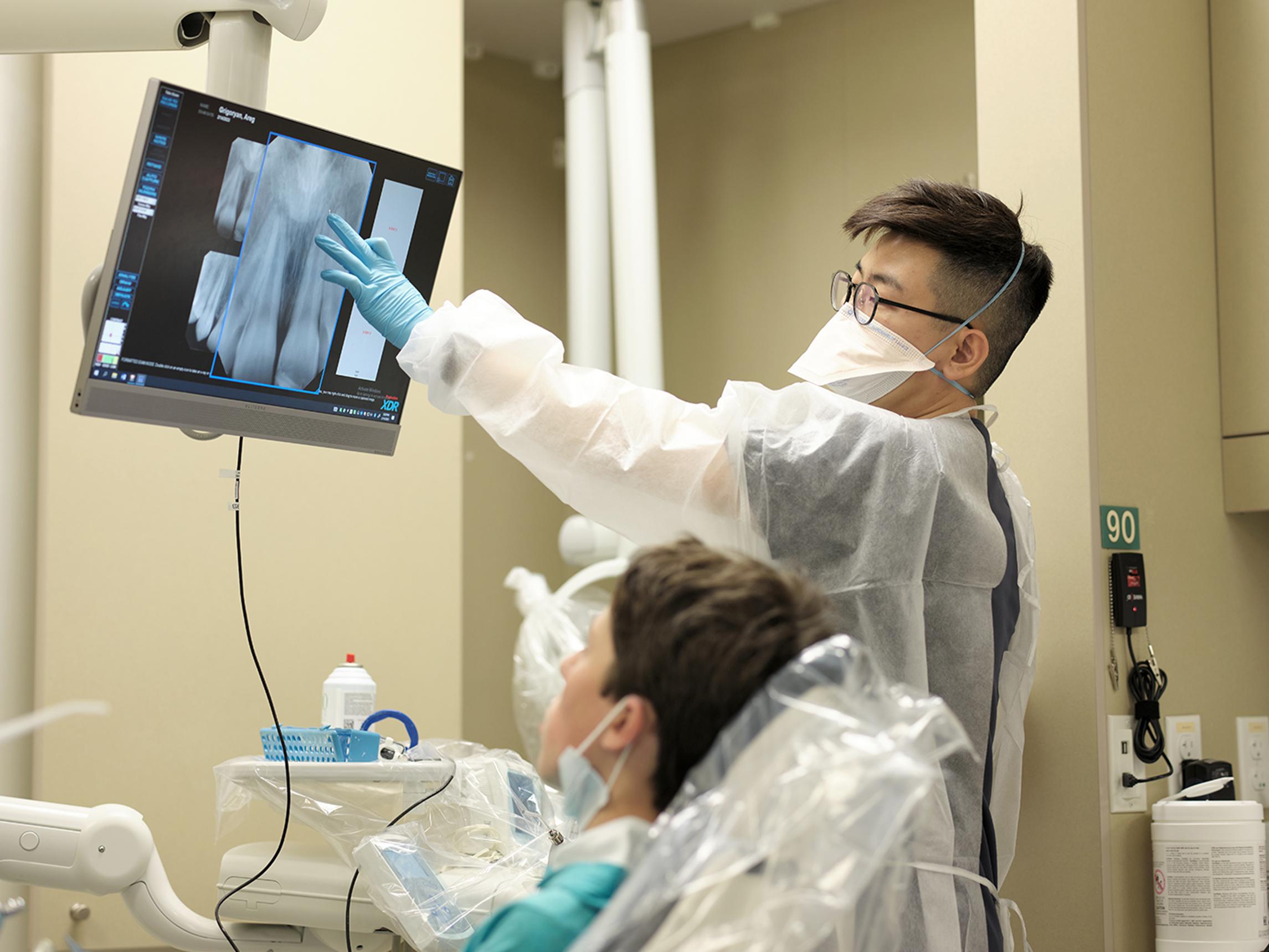An Overview to Typical Dental Problems That Need a Dental professional's Care
Recognizing the variety of dental conditions that require expert care is extremely important for keeping optimal oral health. Toothaches, for instance, can be symptomatic of serious problems such as tooth cavities, split teeth, or abscesses, each needing certain treatments like fillings or origin canals. Periodontal disease, from the beginning of gingivitis to a lot more extreme periodontitis, highlights the value of routine dental examinations and cleansings. Moreover, impacted wisdom teeth and jaw problems can present substantial pain and complications. Ensuring timely visits to the dental professional can reduce these issues properly, yet just what are the indications and therapies entailed?
Toothaches
Toothaches are a typical oral condition that can range from light discomfort to severe discomfort, commonly showing a hidden issue that requires expert attention. This discomfort can come from a selection of resources, including oral cavities, broken or fractured teeth, and oral abscesses. Each of these conditions positions significant threats if left unattended, possibly causing a lot more severe difficulties.
Dental tooth cavities, likewise called cavities, are triggered by the accumulation of plaque that erodes tooth enamel, resulting in openings or pits in the impacted teeth (dentist in eugene oregon). Cracked or fractured teeth, on the other hand, might result from injury, grinding, or attacking into tough items. These architectural problems can expose the delicate inner layers of the tooth, causing pain and raising the danger of infection. Abscesses hurt infections at the origin of a tooth or between a tooth and the gum tissue, typically arising from extreme decay or without treatment cavities.
Reliable treatment of toothaches includes addressing the origin. This may consist of dental fillings for cavities, crowns for cracked teeth, or root canals and anti-biotics for abscesses. Very early intervention by an oral expert can avoid further damage and relieve pain, ensuring ideal dental health and wellness.
Gum Disease
Periodontal condition, a prevalent yet commonly forgotten oral problem, shows up through swelling and infection of the gums and sustaining cells. If left unattended, gingivitis can proceed to periodontitis, an extra severe form characterized by the devastation of the sustaining bone and connective cells, ultimately leading to tooth loss.
The main source of gum condition is microbial plaque, a sticky, anemic movie that continuously develops on teeth. Poor oral health, smoking, hereditary tendency, and certain medical problems, such as diabetes mellitus, can exacerbate the risk of creating gum tissue condition. Normal dental check-ups are vital for very early detection and administration of this condition.
Treatment for gum tissue disease ranges from expert dental cleansing and scaling to more sophisticated procedures like root planing and gum surgical treatment, depending on the seriousness. Maintaining excellent oral hygiene methods, including brushing two times daily, flossing, and making use of a disinfectant mouth wash, can dramatically reduce the threat of periodontal illness and promote healthier periodontals.
Cavities
Cavities, also understood as tooth decays, are an usual dental problem identified by the devastation of tooth enamel due to acid-producing website link microorganisms in the mouth. These bacteria thrive on sugars and starches from food and beverages, generating blog acids that gradually deteriorate the enamel, bring about tooth cavity formation.
Early-stage cavities might not reveal symptoms, however as they proceed, they can trigger tooth pain, sensitivity to hot or cool, noticeable holes or pits in the teeth, and discoloration. If left unattended, dental caries can pass through deeper layers of the tooth, potentially resulting in extreme pain, infection, and even tooth loss.
Avoiding tooth cavities entails a mix of great oral health practices and nutritional practices. Normal cleaning with fluoride tooth paste, flossing, and regular dental check-ups are essential. Dental experts might additionally advise added safety nets, such as fluoride treatments and dental sealers, to shield teeth from degeneration.
Treatment for tooth cavities depends on their severity. Small tooth cavities can be addressed with oral fillings, which restore the tooth's structure. More advanced instances may call for crowns and even origin canal treatment if the decay has reached the tooth's pulp. Timely treatment by a dental practitioner is vital to stop complications and maintain total oral health.

Impacted Knowledge Teeth
Influenced wisdom teeth are a prevalent dental issue that happens when the third molars, typically described as knowledge teeth, stop working to completely arise or straighten properly within the mouth. This problem often results from insufficient space in the jaw or an irregular growth angle of the teeth. Impacted wisdom teeth can lead to a range of problems, consisting of damage, infection, and pain to adjacent teeth.
When wisdom teeth come to be impacted, they are commonly partly erupted or continue to be completely underneath the periodontal line. This partial eruption can develop a path for microorganisms to get in the gums, resulting in infections that materialize as swelling, pain, and also fever. Additionally, impacted wisdom teeth can exert stress on neighboring teeth, possibly creating crowding or changing.
A thorough oral examination, generally including X-rays, is important for detecting affected wisdom teeth. Treatment often includes medical extraction, performed by an oral surgeon. The procedure aims to minimize pain and avoid additional difficulties, such as cysts or damage to surrounding bone structures. Post-operative treatment is crucial to ensure correct recovery and minimize the danger of infection. Normal dental check-ups are advisable to keep track of the problem and keep oral wellness.
Jaw Disorders
Jaw problems, jointly called temporomandibular joint (TMJ) problems, encompass an array of problems that influence the jaw joint and bordering muscle mass. These conditions can manifest via symptoms such as pain or inflammation in the jaw, difficulty chewing, a standing out or clicking audio when shutting the mouth or opening, and also chronic headaches. TMJ problems can develop from various aspects, consisting of arthritis, jaw injury, or habitual habits like teeth grinding or jaw clenching.
Medical diagnosis of TMJ problems generally involves a detailed examination by a dental professional, including a physical assessment of the jaw, dental X-rays, and occasionally advanced imaging techniques like MRI or CT checks to assess the informative post joint's problem. Non-invasive strategies such as physical treatment, dental splints, and medications aimed at lowering swelling and discomfort are commonly first-line therapies.
Very early intervention by a dental expert is crucial to avoid the progression of TMJ conditions and to preserve overall dental health. Patients experiencing persistent jaw discomfort or disorder should look for timely analysis and therapy.
Final Thought
Toothaches frequently show underlying concerns such as dental caries, cracked teeth, or abscesses, requiring prompt treatment. Influenced wisdom teeth and jaw problems likewise require professional attention to relieve pain and avoid additional issues.
Dental tooth cavities, additionally understood as decays, are caused by the buildup of plaque that erodes tooth enamel, leading to holes or pits in the affected teeth. Abscesses are unpleasant infections at the root of a tooth or between a tooth and the periodontal, usually resulting from serious degeneration or without treatment dental caries.

In addition, affected wisdom teeth can apply pressure on neighboring teeth, possibly triggering crowding or changing.
Comments on “Why You Should Pick a Neighborhood Dentist Eugene for Personalized Care”